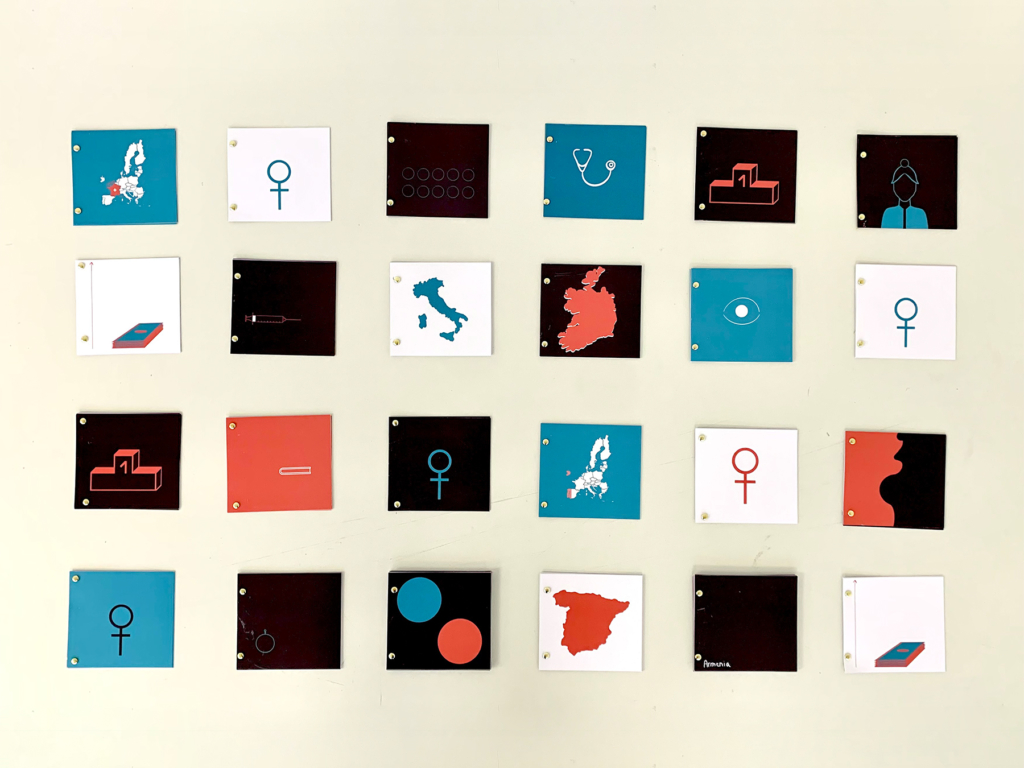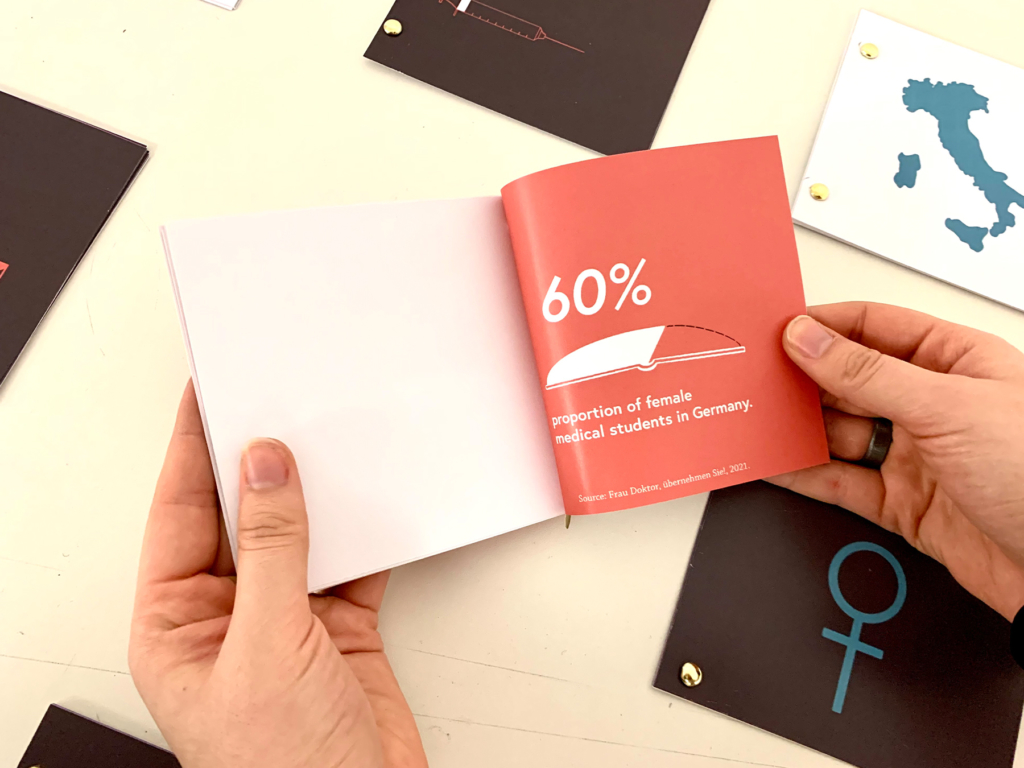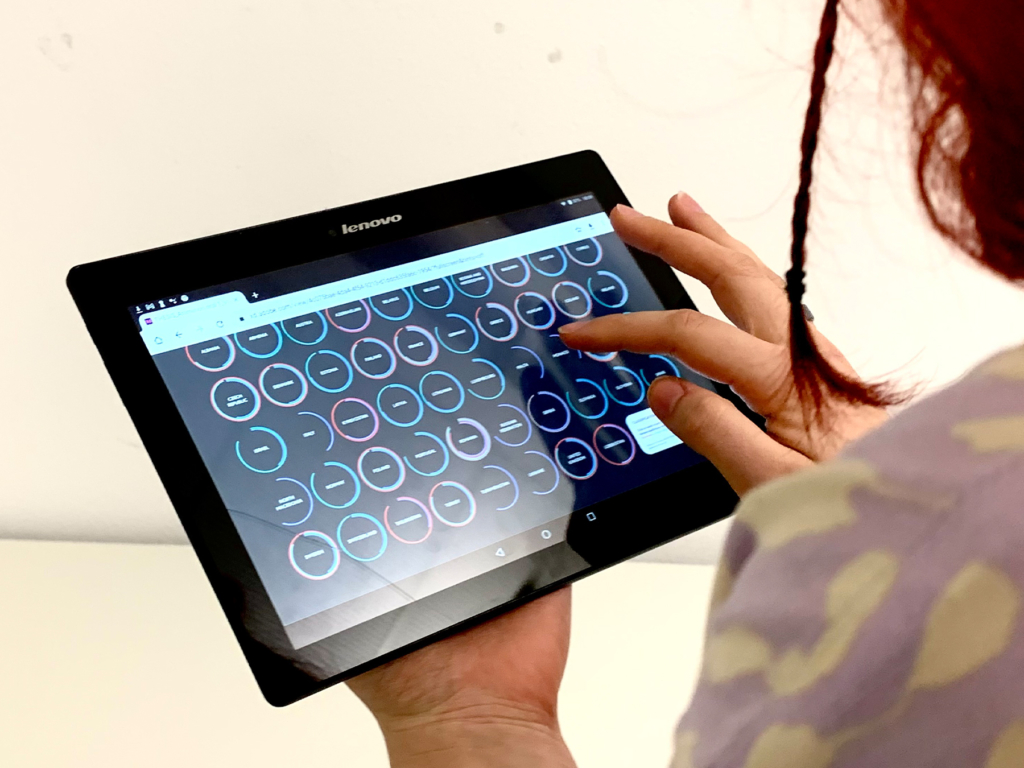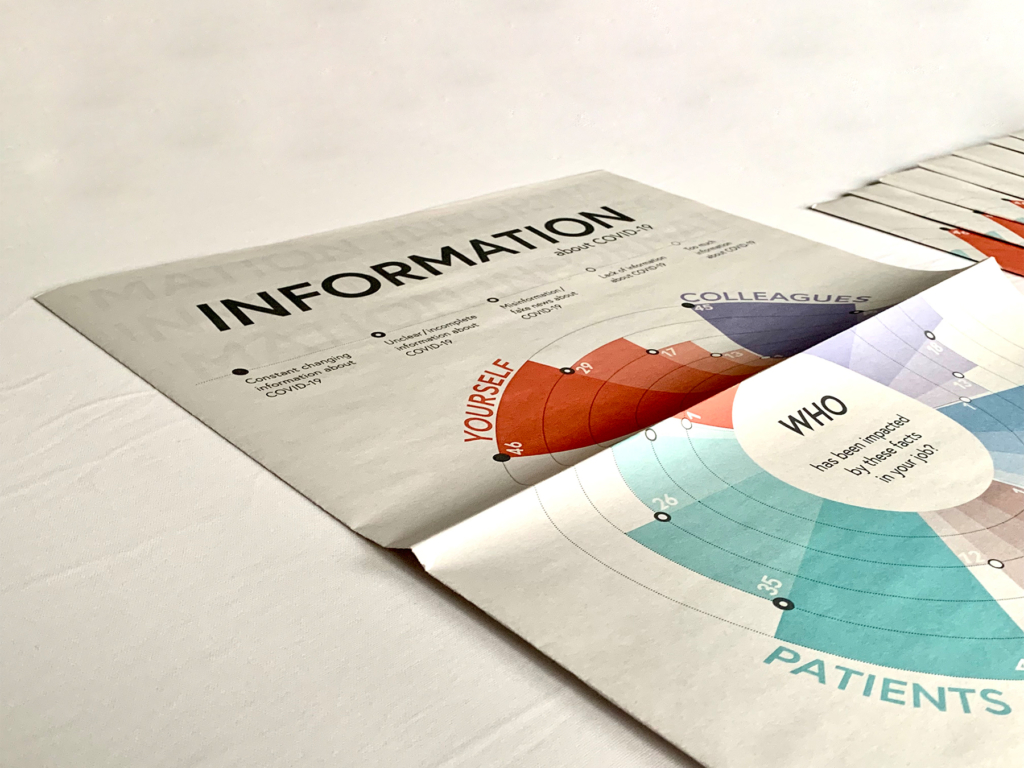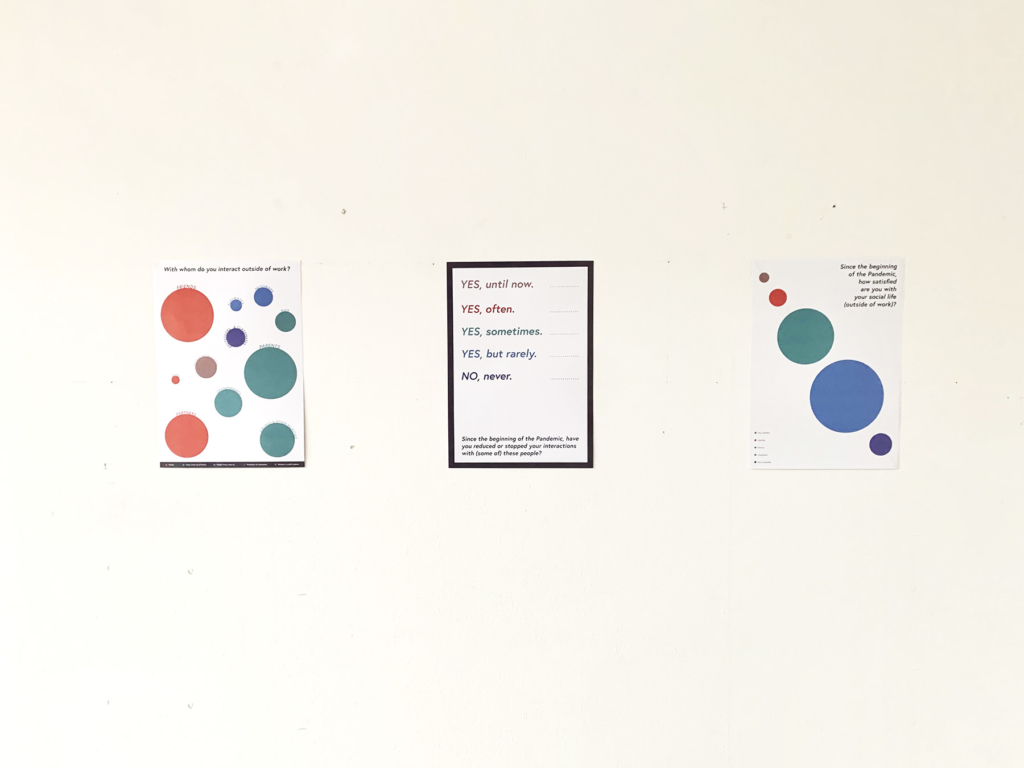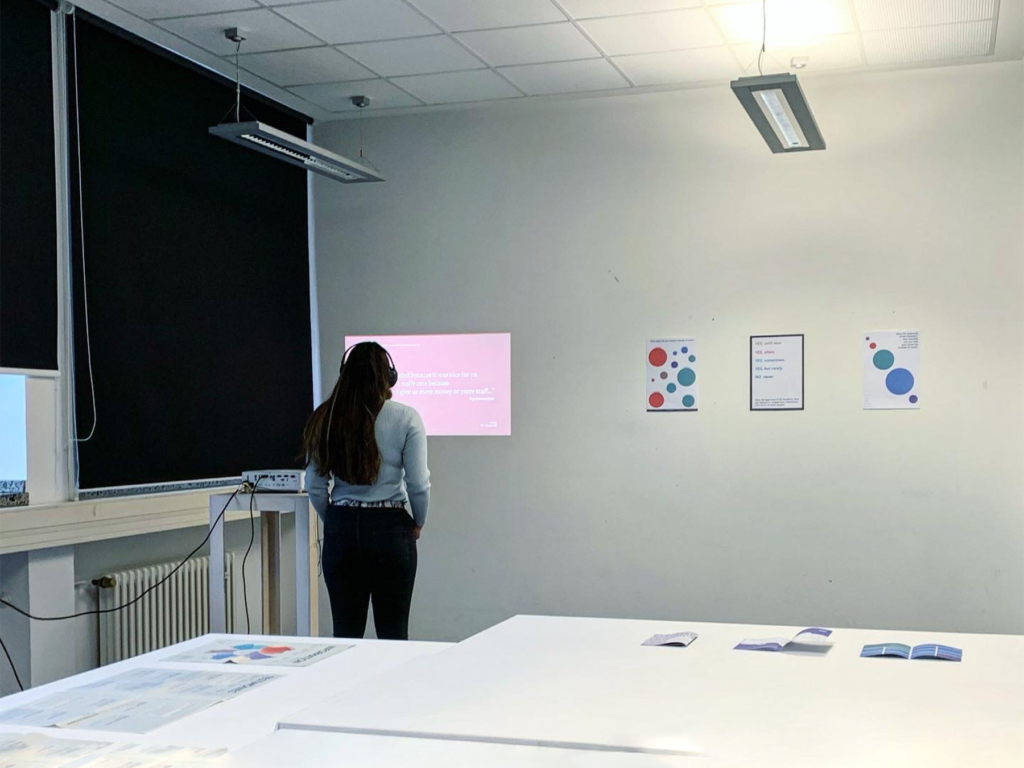The bachelor thesis "She cares, do you?" by KISDstudent Estelle Corban investigated how information design can communicate the issues and realities of European female healthcare professionals during the COVID-19 outbreak. The project consisted of a paper presenting various data collected from new and older research including Estelle’s bachelor proposal, “Visualizing Women in the COVID-19 Pandemic” as well as a final exhibition in February 2022, at KISD.
Frontline professionals have played a central role during this outbreak, especially health workers, who dedicated themselves to facing this unknown virus and all the health, social and economic difficulties caused by it.
Nevertheless, there is an essential and little-known fact about this specific group: it consists mainly of females, especially in the EU, where 78% of healthcare workers are female (Eurostat, 2021).
At first glance, we might think that their proximity to the virus has been their main struggle. Though, as confirmed by interviews and surveys conducted in this thesis, other problems related to their working conditions, mental health, social life, family management, and acknowledgment by society, among others, have impacted until now this target group.
But only a few reports have been able to list these issues due to a lack of female-related or sex-disaggregated data (Human Development Report Office and the Gender Team et al., 2020, p.3) during this outbreak. This fact remains confusing, knowing that the COVID-19 Pandemic has witnessed “an increased use of data visualization” (Engebretsen & Kennedy, 2020, p.19), implying a non-negligible amount of data.
Therefore, Estelle Corban aimed to shed light on the realities of female European healthcare workers during the COVID-19 outbreak through multiple, interactive, inclusive, and interdisciplinary translations of data. All mediums invited visitors to explore numerical and non-numerical data between analog and digital interfaces and artifacts through an exhibition. The space, gathering audio, visual, and tactile content, allowed visitors to interact freely and according to their sensitivity to these data.
This project tried to open a dialogue about the essential role of female European healthcare workers in the realm of the covid-19 pandemic. But beyond this context, the presented issues highlighted in this work underlined a more global reality: the gender unequal and patriarchal backbone of our European healthcare systems, benefiting from a care economy based on a female workforce.
For further information, please visit Shecaresdoyou

